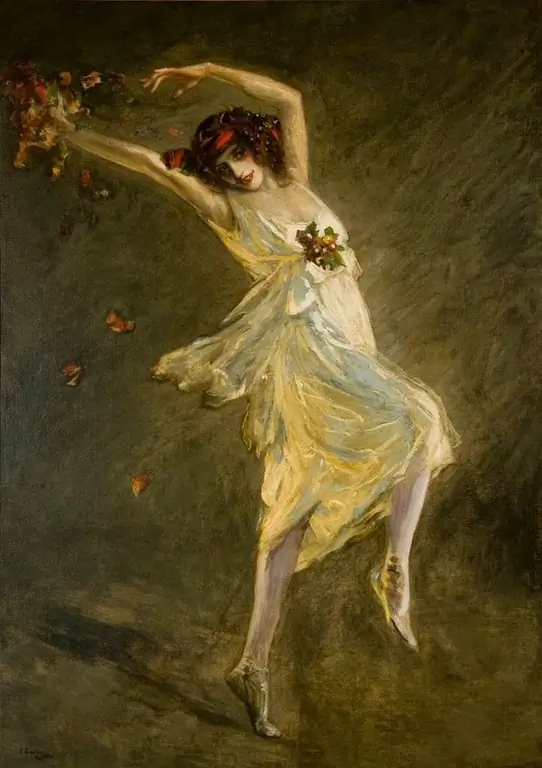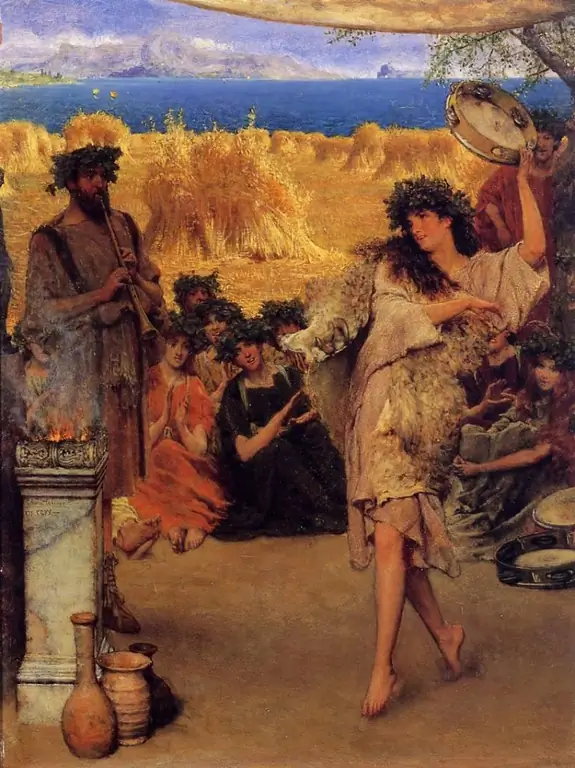In classical Russian literature you can hear borrowings from foreign languages. One example of such a migration of terms was the Bacchae. This capacious concept came from Ancient Greece, and the last peak of popularity was at the beginning of the 21st century, when several series dedicated to the myths and legends of the Mediterranean appeared on the screens at once. But what does it mean?
Cult of wine
Not philologists, but historians will help in resolving the issue. The root cause was the god of winemaking Dionysus, who was also in charge of the life-giving power of nature and religious ecstasy. In ancient Rome, he was given the name Bacchus, or Βάκχος. The verb bacchari had two meanings:
- celebration of orgy;
- "go wild, go on a rampage".
Implied traditional events with a lot of wine and often with orgies. Bacchante is an obligatory participant in the celebration. She was distinguished by very free views and specific behavior, unusual for noble and restrained citizens.

Encyclopedic interpretation
Not much has changed these days. historic althe meaning of the word "Bacchante" has come down unchanged, is used by scientists as an ordinary term:
- priestess of Bacchus;
- participant in the feast in his honor.
However, in a figurative sense on the territory of Russia, it has acquired an ambiguous decoding. This concept was often pointed to women:
- voluptuous;
- sensual.
At the same time, they described a vibrant appearance, a cheerful and indomitable disposition, a frank love for all sorts of pleasures. Delicious food, sweet wine, beautiful music and love joys - this is what a colorful epithet is associated with. Moreover, a bacchante is not an insult as such, but only an assumption that a person has no complexes.
Mythological background
The nature of the term is best revealed by its synonym - "maenads", or Μαινάδες:
- "crazy";
- "raging".
Under the influence of intoxication, representatives of the cult committed unimaginable acts. One of the classic images is considered to be a half-naked woman in the skin of a sika deer, for which strangled snakes serve as a belt. Fashion is extraordinary.
Euripides pointed out the difference in origin. Maenads, according to him, came from Asia after the campaign of Bacchus to India, becoming constant companions of the deity. Real priestesses-foreigners! While a Bacchante is a Greek woman who retired from the hustle and bustle to Mount Cithaeron in order to fully devote herself to Dionysus.

Moderncommunication
The word is bright and sonorous, but it is not worth using it outside of historical research or scientific work on Greek legends. Too pretentious and out of place in our age. The definition has a place in poetry, fiction to immerse yourself in the atmosphere of the past, but no more.






